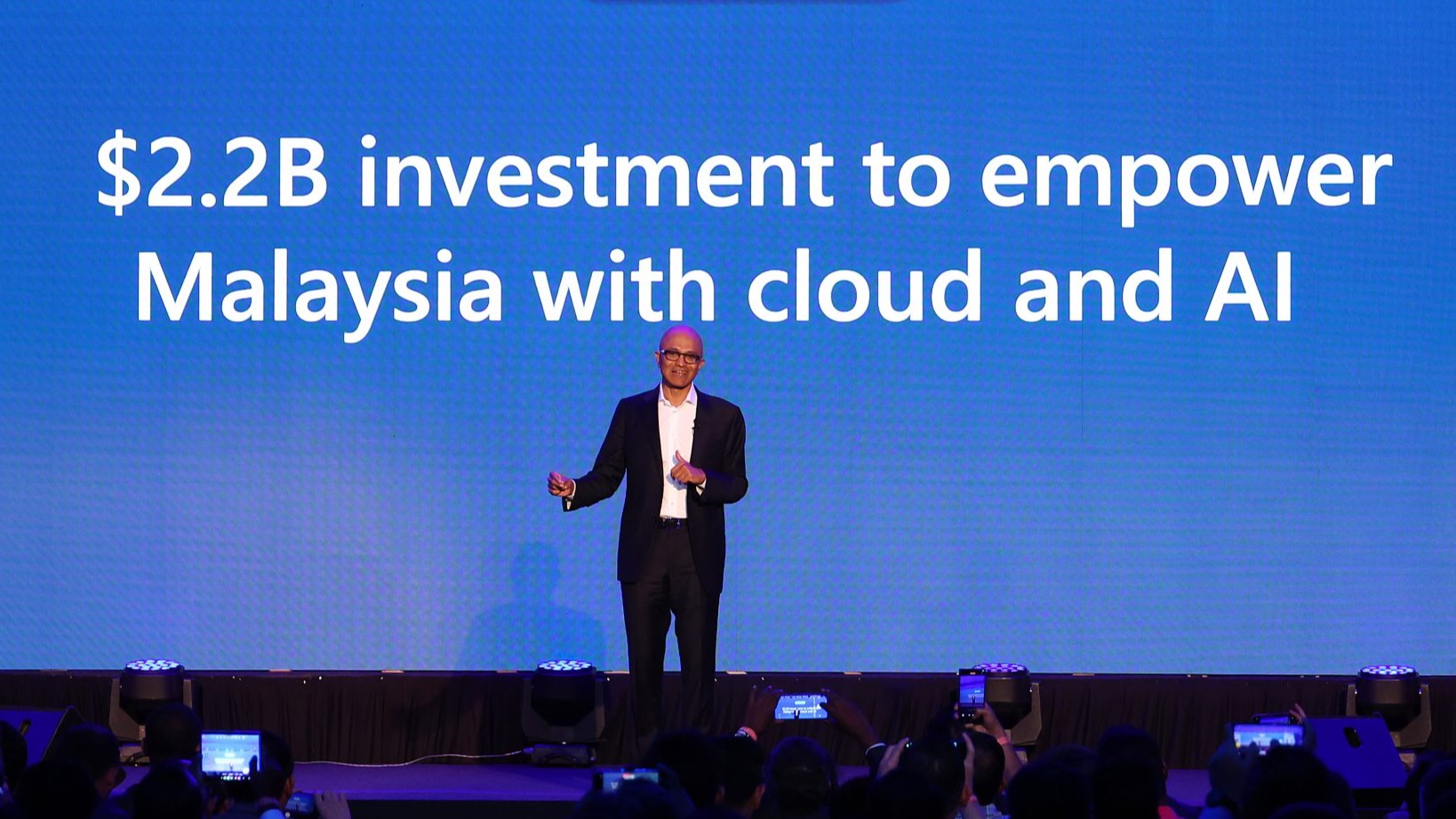Microsoft has pledged $2.2 billion to invest in Malaysia over the next four years.
The investment, which will see the company expand cloud and artificial intelligence services in Malaysia, is the largest ever investment from the Windows maker in the country.
The company said that the investment will go towards building cloud and AI infrastructure, creating AI skilling opportunities for an additional 200,000 people, strengthening its partnership with the Government of Malaysia to establish a national AI Centre of Excellence and enhance the nation’s cybersecurity capabilities, and supporting the growth of Malaysia’s developer community.
Microsoft chairman and chief exec Satya Nadella said: “Our investments in digital infrastructure and skilling will help Malaysian businesses, communities, and developers apply the latest technology to drive inclusive economic growth and innovation across the country.”
YB Senator Tengku Datuk Seri Utama Zafrul Abdul Aziz, Malaysia’s minister of Investment, Trade & Industry, added: “Microsoft’s 32-year presence in Malaysia showcases a deep partnership built on trust. Indeed, Malaysia’s position as a vibrant tech investment destination is increasingly being recognised by world-recognized names due to our well-established semiconductor ecosystem, underscored by our value proposition that ‘this is where global starts’.”
Microsoft is in a period of heavy investment in Asia, and earlier this week announced a $1.7 billion investment in Indonesia. The company has also announced plans to open its first regional data centre in Thailand.
Latest News
-
Indra wins TfL contract to run London ticketing systems
-
Japan ‘launches government probe’ into Grok
-
Social media sites stop access to 4.7m under-16 accounts in Australia
-
Government announces £52m funding to support British robotics and defence tech firms
-
Swift to launch blockchain-based shared ledger after successful digital asset pilot
-
AWS launches European sovereign cloud service
The future-ready CFO: Driving strategic growth and innovation
This National Technology News webinar sponsored by Sage will explore how CFOs can leverage their unique blend of financial acumen, technological savvy, and strategic mindset to foster cross-functional collaboration and shape overall company direction. Attendees will gain insights into breaking down operational silos, aligning goals across departments like IT, operations, HR, and marketing, and utilising technology to enable real-time data sharing and visibility.
The corporate roadmap to payment excellence: Keeping pace with emerging trends to maximise growth opportunities
In today's rapidly evolving finance and accounting landscape, one of the biggest challenges organisations face is attracting and retaining top talent. As automation and AI revolutionise the profession, finance teams require new skillsets centred on analysis, collaboration, and strategic thinking to drive sustainable competitive advantage.
© 2019 Perspective Publishing Privacy & Cookies




.jpg)



Recent Stories